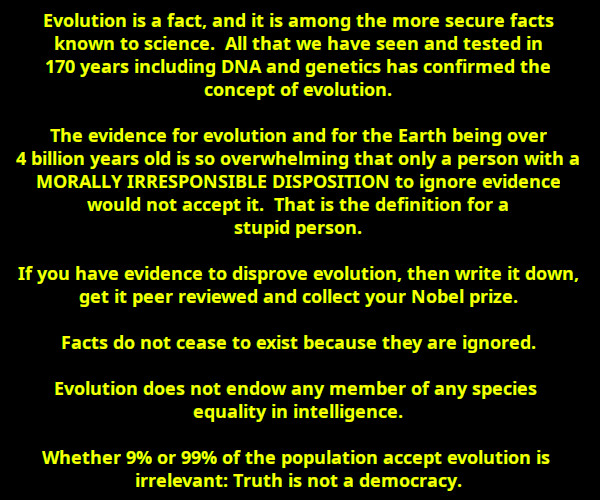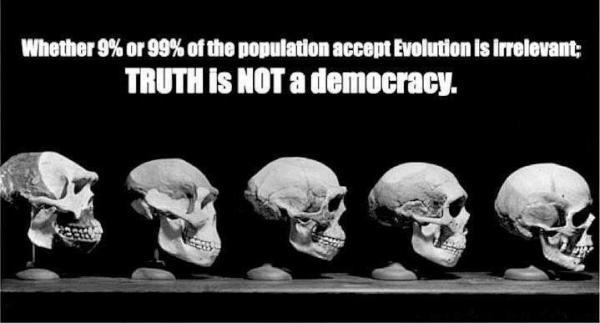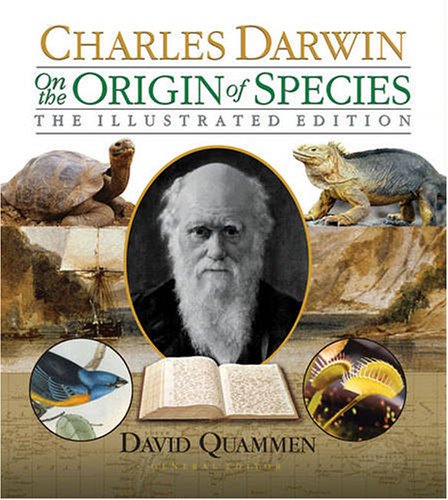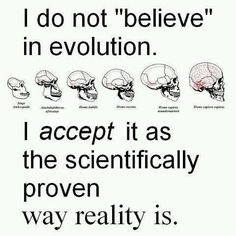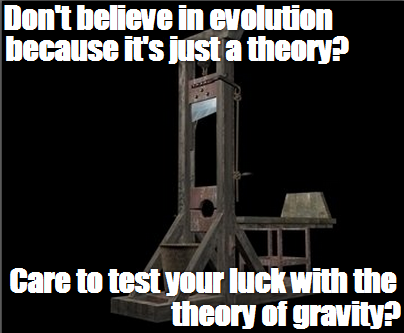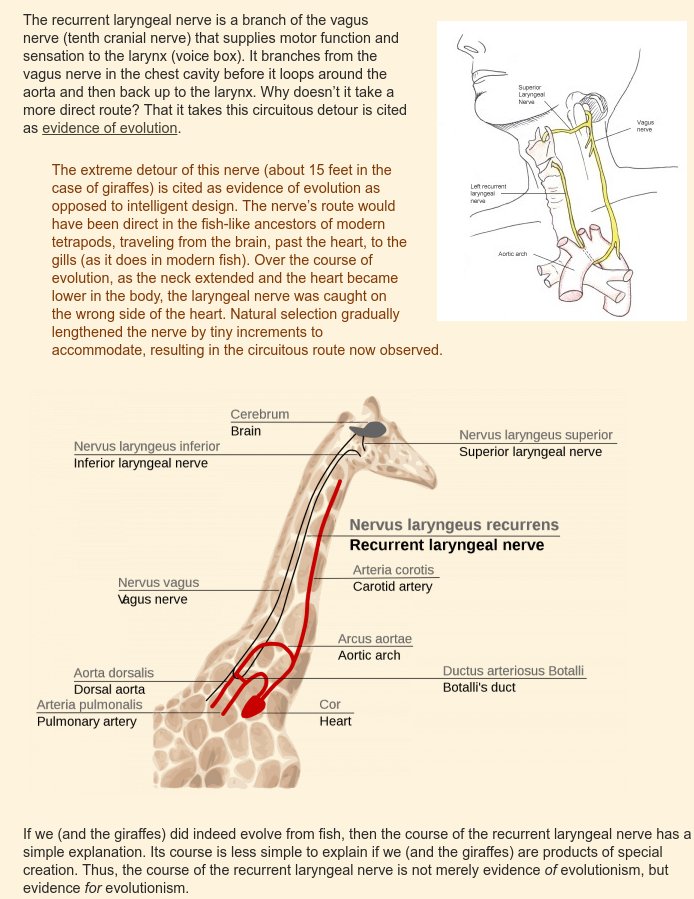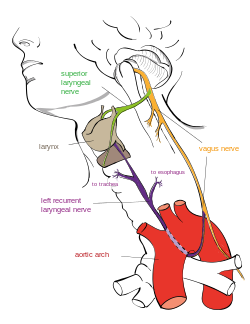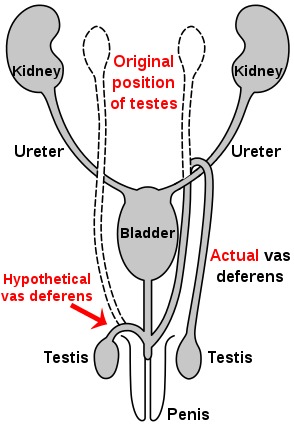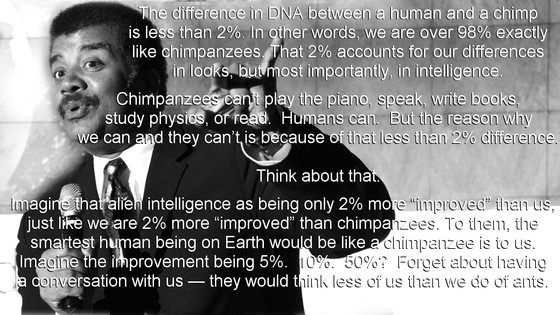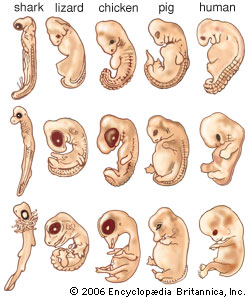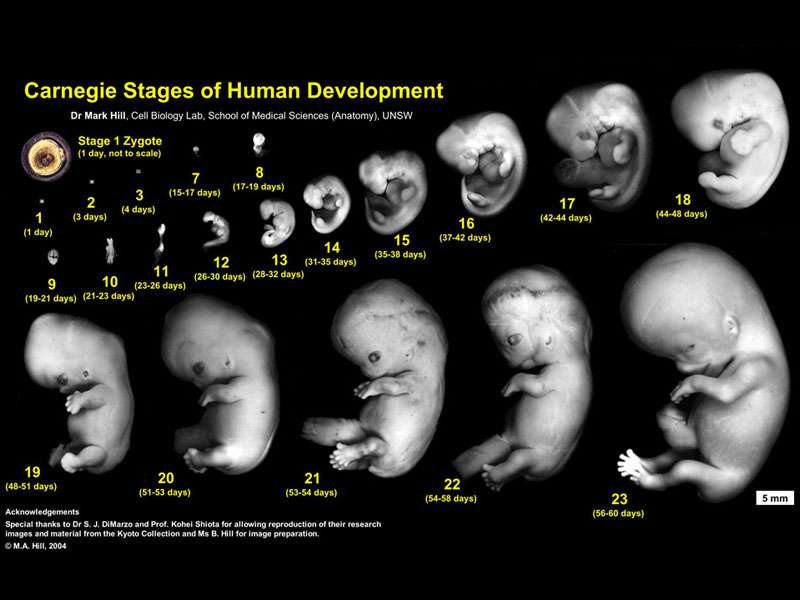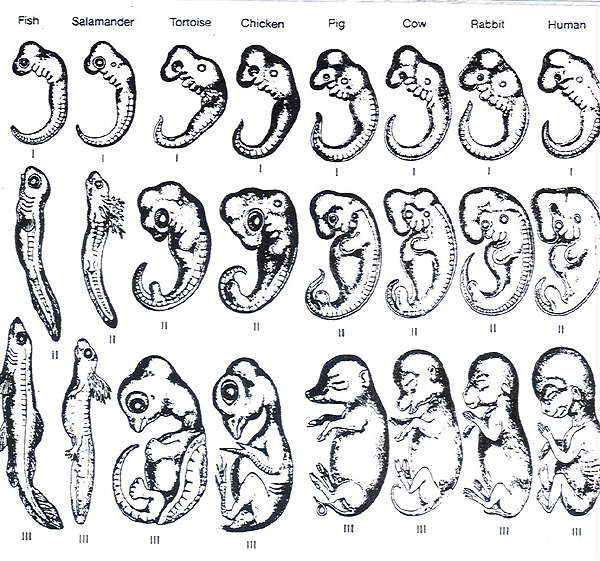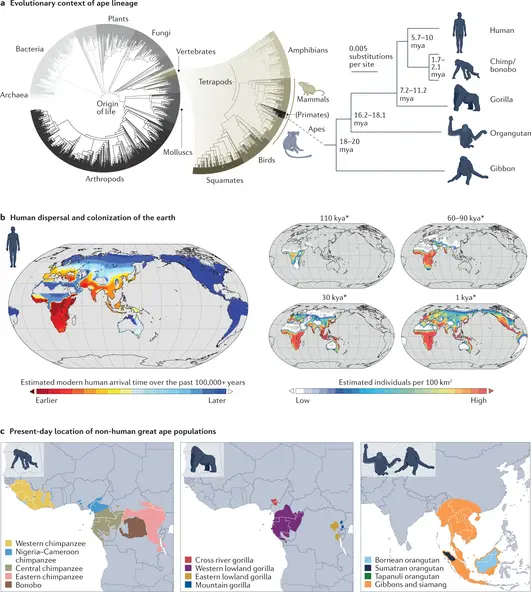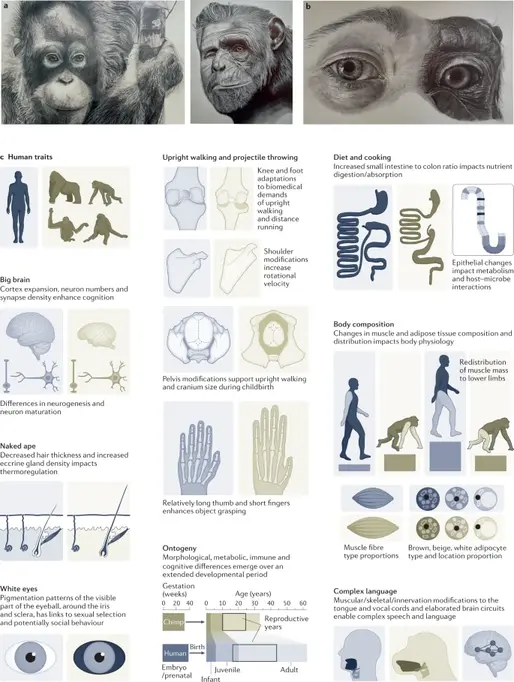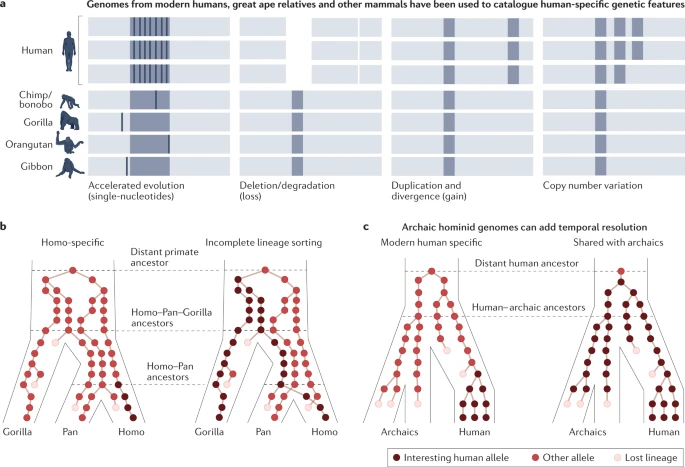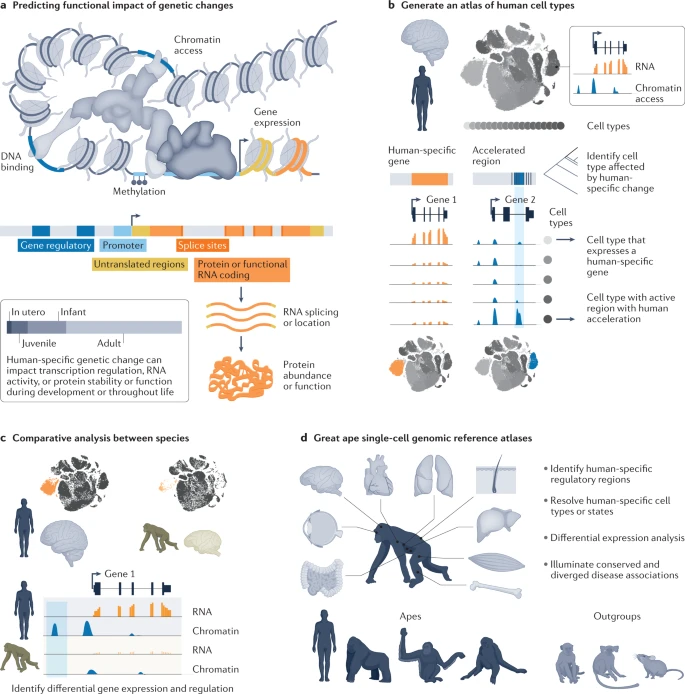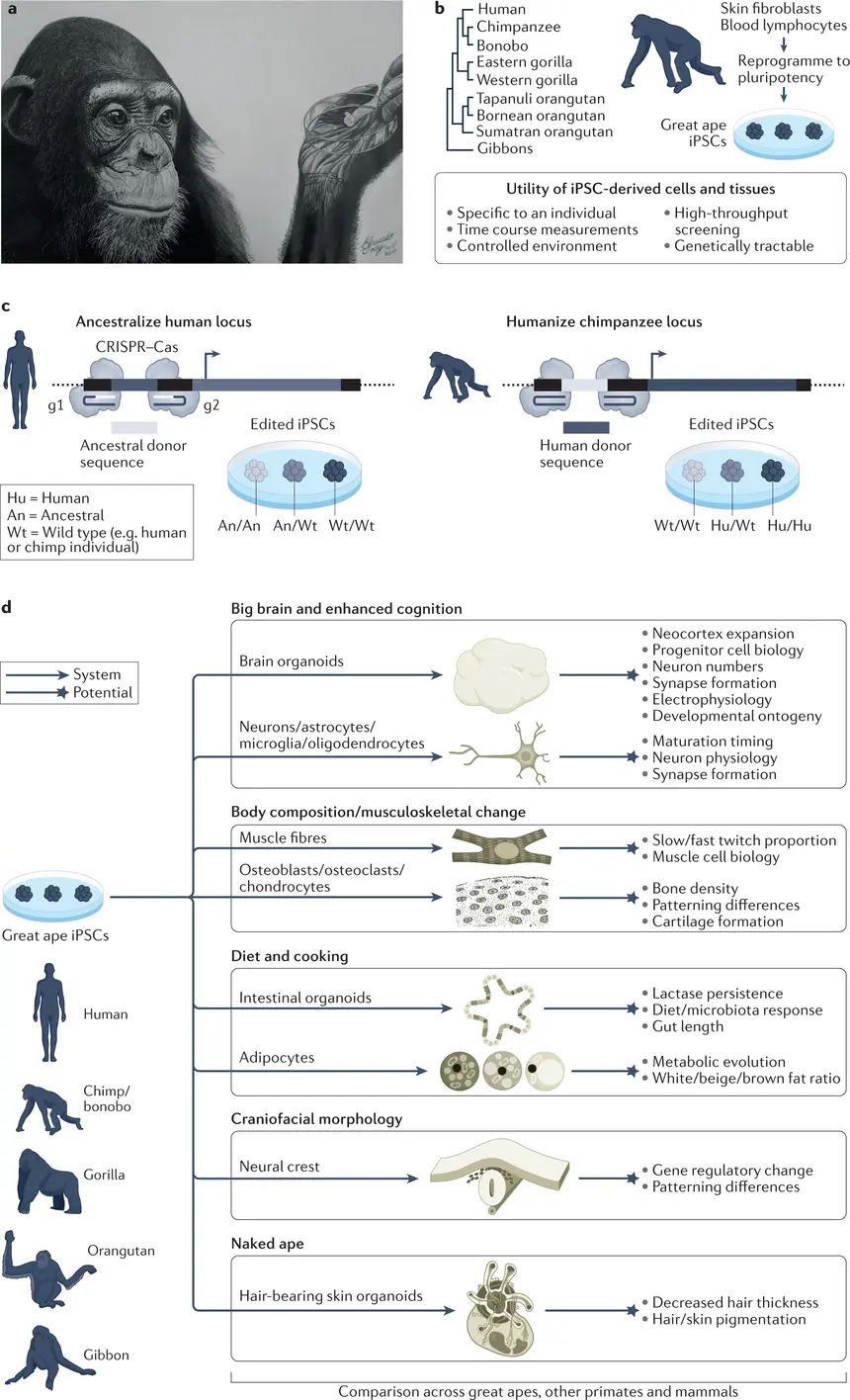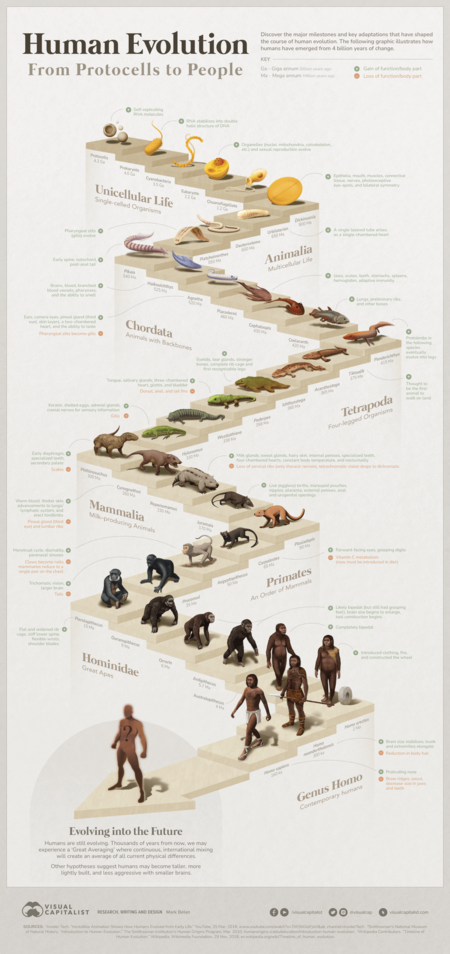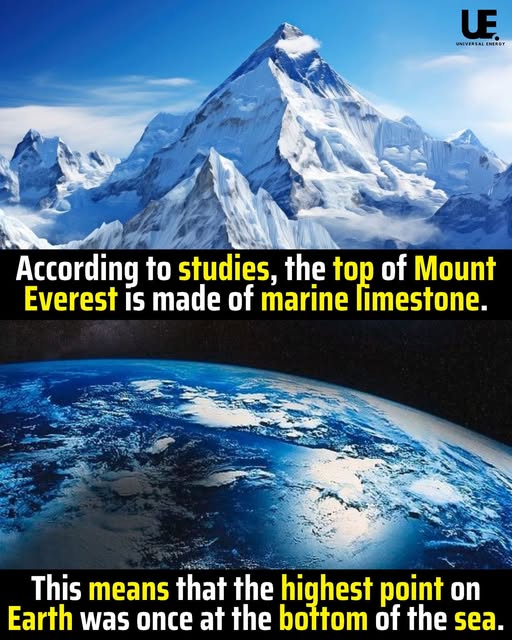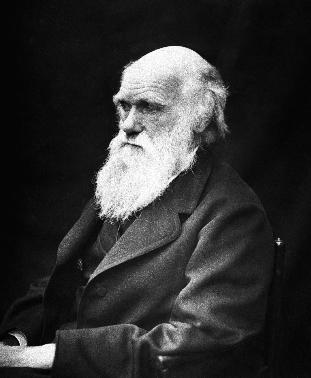

|
Thousands of observable facts from completely independent fields of study
have come together to tell us the exact same story:
all living things on Earth are related,
Evolution is a fact, and it is among the more secure facts known to science. All that we have seen and tested in 150 years has confirmed the concept of evolution. Facts do not cease to exist because they are ignored. All evolution says that over millions of years small genetic changes like those that occur between siblings and cousins add up to where the descendants of one lineages genetics are so different from the other lineages that they cannot create viable offspring which is what defines a species. The simple mechanisms of evolution can explain all the anomalies of our species.

The evidence for evolution and for the Earth being over 4 billion years old is so overwhelming that only a person with a morally irresponsible disposition to ignore evidence would not accept it. That is the definition for a stupid person.
Geology shows that fossils are of different ages.

Evolution does not strive for complexity.
Evolution is counter-intuitive.
See The Watchmaker analogy and The Blind Watchmaker: Why the Evidence of Evolution Reveals a Universe without Design
February 12: Happy Darwin Day, everyone!

Excerpts from The God Delusion, by Richard Dawkins

What is the evidence for evolution? Intelligent design is an assumption without a scientific basis. For this assumption to be considered a hypothesis, there must be evidence. Where is the evidence of intelligent design, unless you consider evolution itself intelligent design. For a hypothesis to gain credibility, it must be testable. I do not see how intelligent design can be tested. For that same hypothesis to become a theory, the testing of it must be repeatable with the same results each time. It should also be open to all for meticulous scrutiny. Intelligent design can not be considered a hypothesis or a theory, but it can be considered as a nice fairy tale. The Bible is the only one source of creationism. It merely provides an assertion of creationism, without any shred of evidence. Evolution denial is the gold standard of religious nonsense. The evidence for evolution is found in numerous scientific fields like
More than anything else, modern genetics and DNA confirms all aspects of evolution.

Why would God create a man with nipples?
Evolution is a single event where one entire species changes into a different one through a series of discrete intermediate stages, or more bizarrely one member of one species gives birth to a different species which then goes on to reproduce, presumably with itself, to form a new species. Evolved organs, elegant and efficient as they often are, also demonstrate revealing flaws -- exactly as you'd expect if they have an evolutionary history, and exactly as you would not expect if they were designed.
|
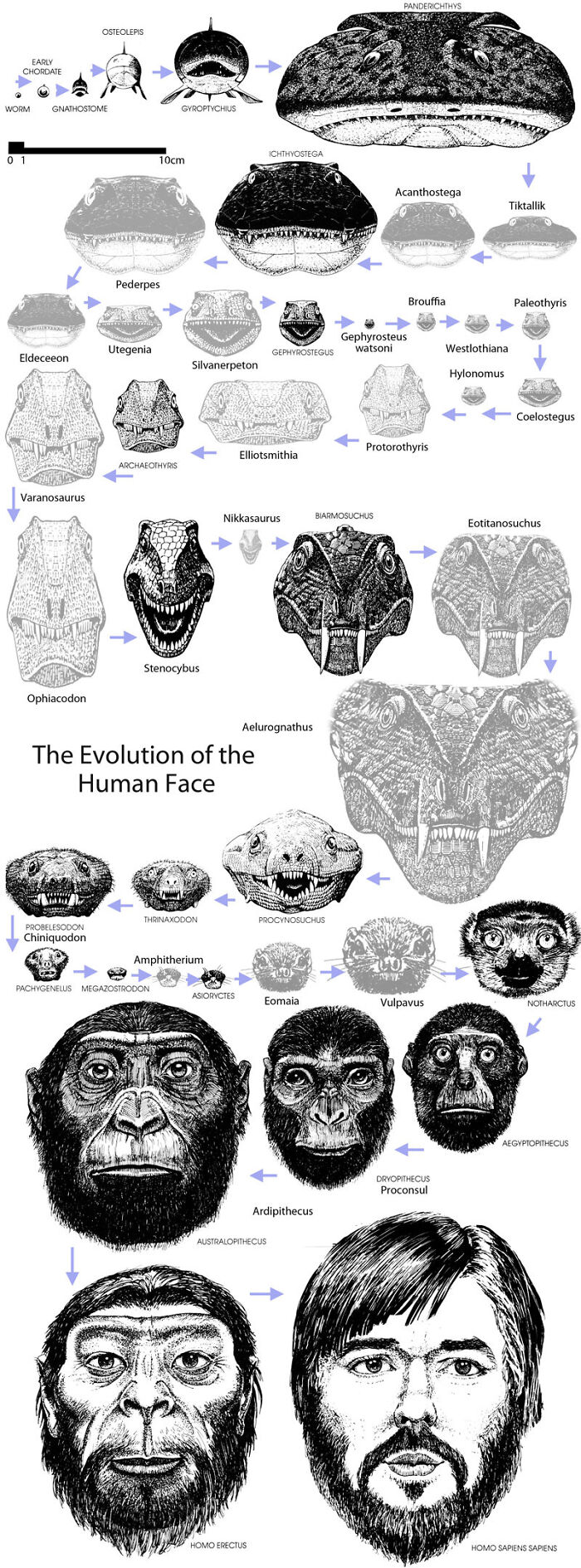

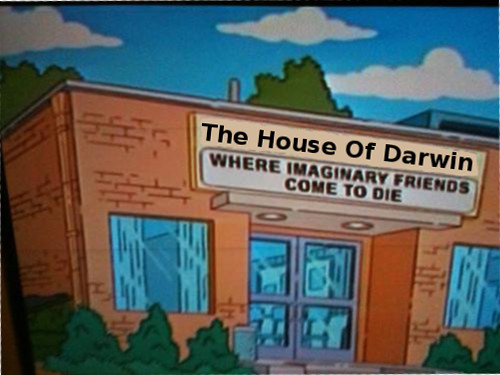
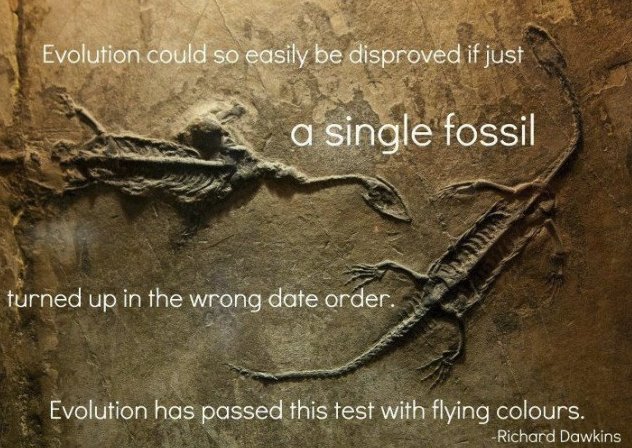
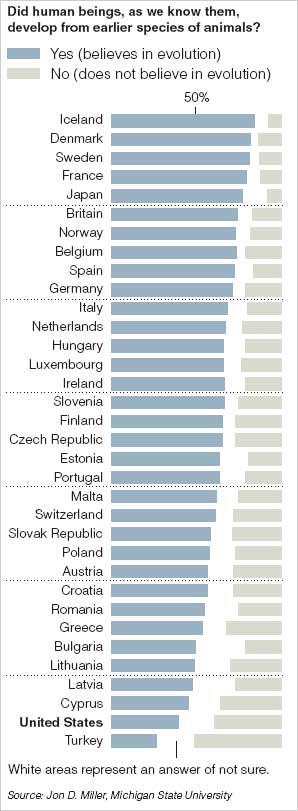
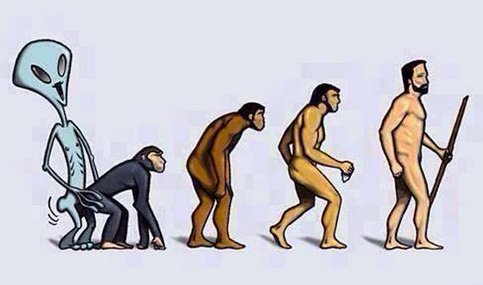

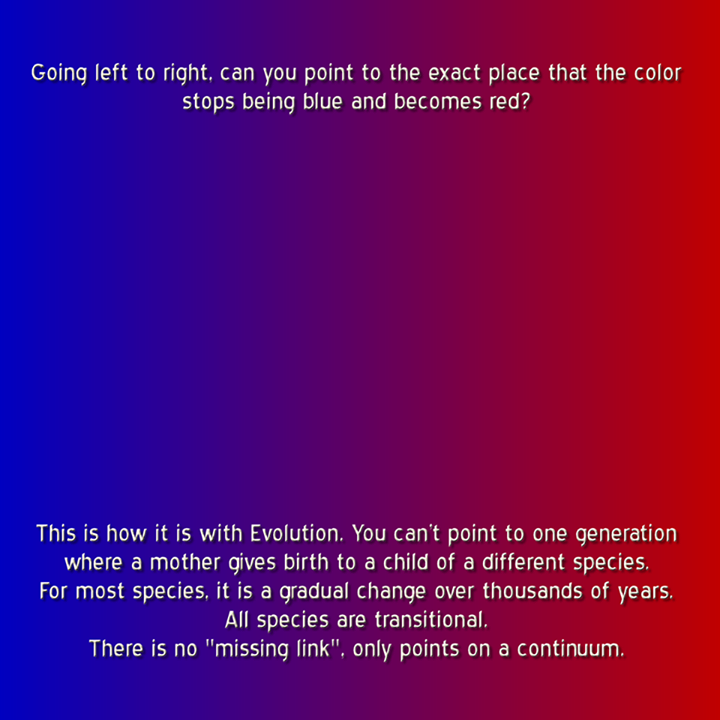
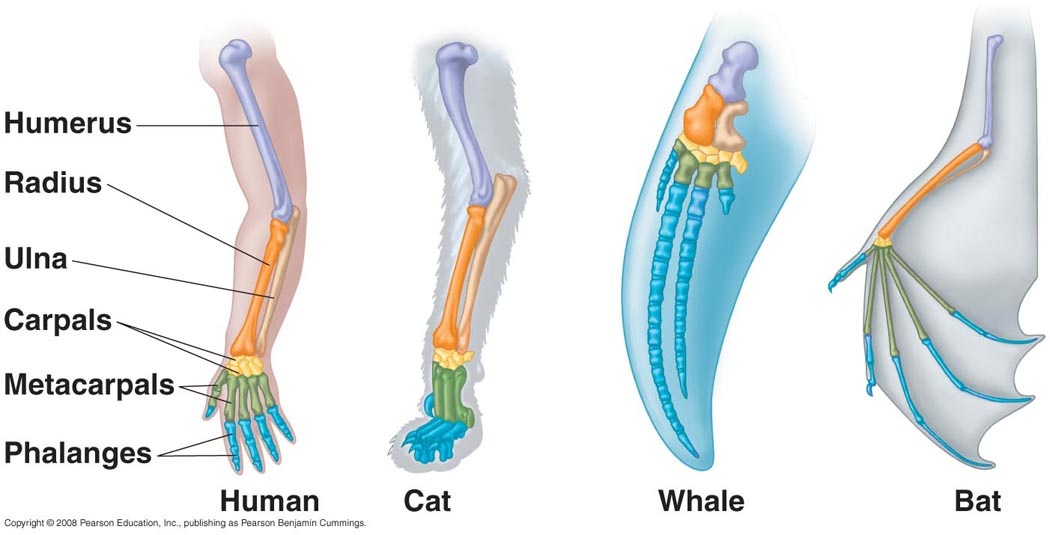



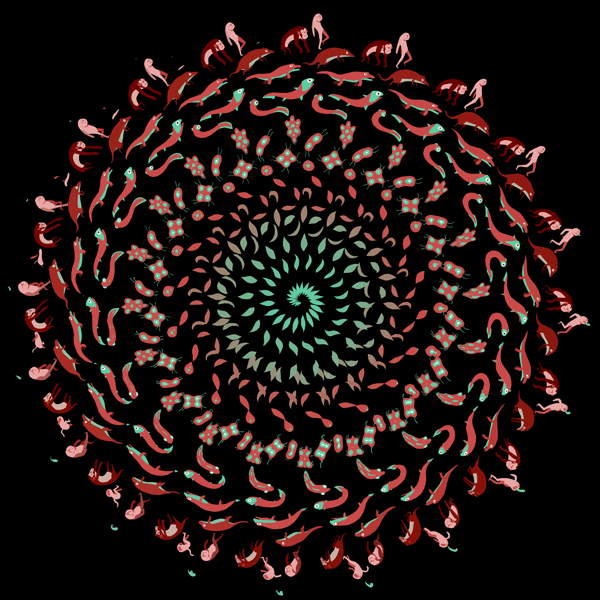
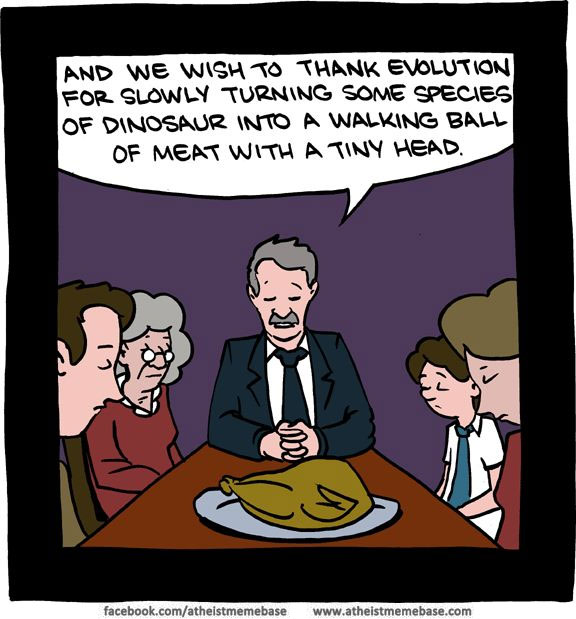
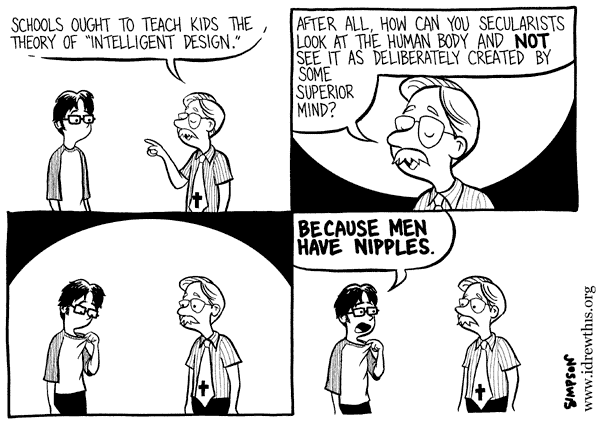

|
On the humorous side of evolution....
Why would a god create a man with nipples? Why would a god create a man with a foreskin on his penis and then require that it be artificially removed? Consider the female vagina and anus. Why would a god place two sewer lines in the middle of a recreation area?
So let me get this right.
But you think scientists are lying about evolution? You're much closer to science than to god, when you analyze your beliefs. Evolution by natural selection, the central concept of the life's work of Charles Darwin, is a theory. It's a theory about the origin of adaptation, complexity, and diversity among Earth's living creatures. If you are skeptical by nature, unfamiliar with the terminology of science, and unaware of the overwhelming evidence, you might even be tempted to say that it's "just" a theory. In the same sense, relativity as described by Albert Einstein is "just" a theory. The notion that Earth orbits around the sun rather than vice versa, offered by Copernicus in 1543, is a theory. Continental drift is a theory. The existence, structure, and dynamics of atoms? Atomic theory. Even electricity is a theoretical construct, involving electrons, which are tiny units of charged mass that no one has ever seen. Each of these theories is an explanation that has been confirmed to such a degree, by observation and experiment, that knowledgeable experts accept it as fact. That's what scientists mean when they talk about a theory: not a dreamy and unreliable speculation, but an explanatory statement that fits the evidence. They embrace such an explanation confidently but provisionally - taking it as their best available view of reality, at least until some severely conflicting data or some better explanation might come along. The rest of us generally agree. We plug our televisions into little wall sockets, measure a year by the length of Earth's orbit, and in many other ways live our lives based on the trusted reality of those theories.
In biology, the theory of how life changes over time is called the evolutionary theory. The scope of evolutionary theory is from the first lifeforms that can pass on heritable traits to the biodiversity of today. The evidence is the consilience from 1) direct observation, 2) genetics, 3) molecular biology, 4) paleontology, 5) geology, 6) biogeography, 7) comparative anatomy, 8) comparative physiology, 9) developmental biology, 10) population genetics, 11) metagenomics... and I often lump in 12) applications of evolution too. We can use the evidence to make predictions about what we should find in each of these fields (like the locations of 'transitional fossils' for example). At no point do we need to know how the first lifeform came to be - the study of that would be origin of life research, which incorporates organic chemistry, biochemistry, inorganic chemistry, physical chemistry, systems chemistry, geology and astrobiology (and more still). More generally, I don't understand is why no evolution deniers can wrap their head around the fact that science doesn't have to have everything at time t_1 in history figured out before we can start solving problems at some later time t_2. If the evidence points to something happening at t_2, then as long as it doesn't break any fundamental physical laws (to the understanding of physical theories and their own scopes!), we don't need to worry about what happened at t_1 to draw conclusions about t_2. Science starts from the observations of the present and works backwards in time; we don't start from the presupposition of 'God did it' and work forwards. Incidentally, origin of life research is a vibrant field of study, with enough figured out that a person looking at it all can say 'yeah, I can see how that could possibly happen'. Is it all figured out? No, not even close, really. Can we reproduce life in a lab? No, and we don't need to, because that wouldn't prove it anyway, that would just prove we're really good at synthetic biology (yet another distinct discipline of study). But do we know enough to make naturalistically feasible hypotheses? Certainly, and experimentally testing the plausibility of those hypotheses is what much of modern origin of life research is all about. For a taste of some of this cutting-edge work that's been done, check out my collection of key origin of life papers here. * we 'admit' that evolution does not explain origins, in the same way that we 'admit' it does not explain where a rainbow comes from. It wasn't supposed to: creationists are the only ones who think that's a bad thing. |
Send comments to:
 hjw2001@gmail.com
hjw2001@gmail.com
|



